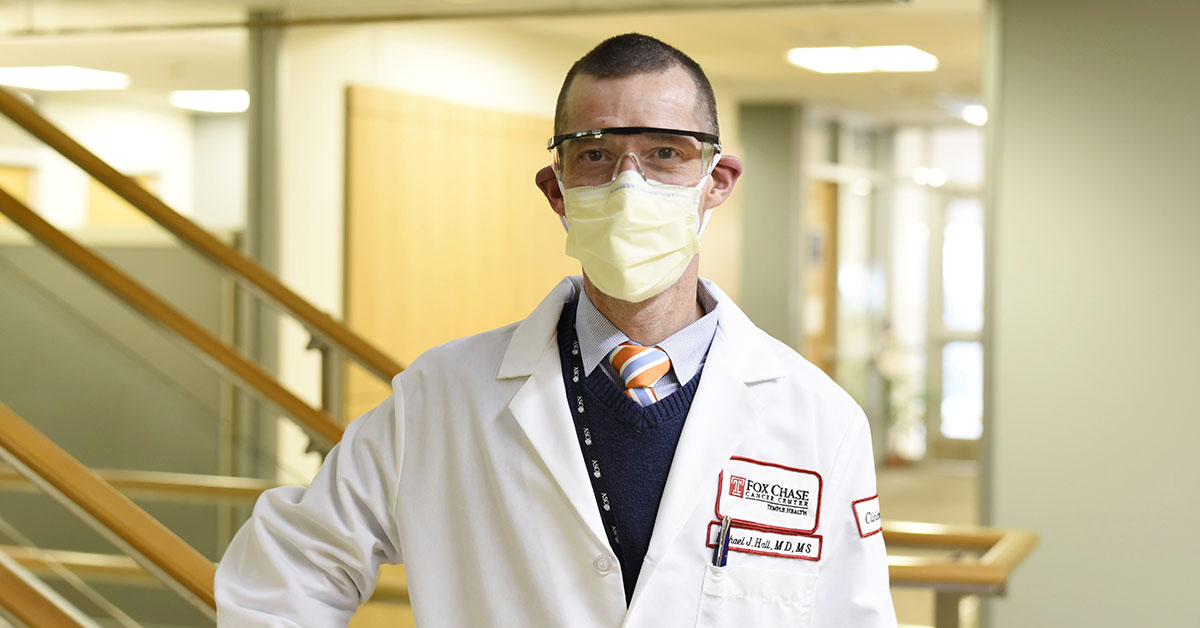
PHILADELPHIA (June 3, 2021)—Researchers from Fox Chase Cancer Center have presented new data showing that oncologists feel underprepared to communicate the results of tumor genetic profiling (TGP) to their patients, particularly to African American patients who have more mistrust around healthcare and particularly around genetic information and testing.
The new data, which was based on in-depth interviews and a nationwide survey, indicates the need to further train oncologists how to communicate hereditary genetic information that arises from TGP. The data was presented during a poster session as part of the virtual scientific program at the American Society of Clinical Oncology (ASCO) 2021 Annual Meeting.
“This research is in an area that hasn’t always been a big focus in cancer—genetics communication,” said study author Michael J. Hall, MD, MS, chair of the Department of Clinical Genetics at Fox Chase. He conducted the study with researchers at Temple University’s College of Public Health.
Virtually all cancer patients today undergo TGP at some point during their course of treatment. TGP involves analyzing the DNA of cancer cells to determine which mutations could be causing the tumor to grow and might be targets for therapy.
However, in the course of the genetic analysis, information about hereditary risks also emerges. This adds to the amount and complexity of information that the oncologist who receives the TGP report must communicate to the patient.
“This technology is tricky. It’s not just doing a blood test to look at white or red blood cell count; it’s much more nuanced. The importance of making sure the patient understands is a lot deeper. I think that one thing we’ve learned is that doctors generally don’t feel that prepared in that arena,” said Hall.
He added that in the case of African Americans and other underserved populations of patients, this challenge can be compounded by low health literacy and high medical mistrust.
Hall, along with Sarah Bauerle Bass, PhD, MPH, associate professor of social and behavioral sciences and the director of the Risk Communication Laboratory at Temple University’s College of Public Health, and other colleagues are working toward developing an intervention that would help oncologists overcome these barriers. This study takes the first step by working out what oncologists know and believe about communicating with their patients around TGP.
The researchers began by interviewing 10 oncologists in the Philadelphia region to get a baseline of what they perceived as barriers related to communicating secondary hereditary risks of TGP to their patients, particularly African American patients. The researchers then used the results of the interviews to inform an online survey that would reach a broader, more diverse sample of oncologists around the United States.
Ultimately, they found that a majority of oncologists (68%) felt they had adequate knowledge to discuss TGP results with their patients, but nearly all of them (86%) said they needed more training, especially in conducting discussions that involved possible hereditary cancer risks.
This research, “Oncologists’ (ONCs) Perceptions of Tumor Genomic Profiling (TGP) and Barriers to Communicating Secondary Hereditary Risk to African American (AA) Patients,” was funded by the American Cancer Society.